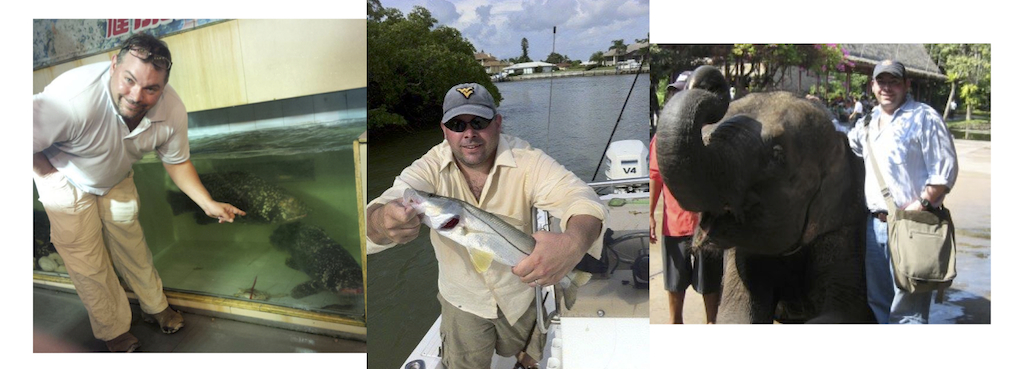Aaron McNevin has been a member of the JRS Biodiversity Board of Trustees since 2009. He is currently the Director of Aquaculture at the World Wildlife Fund (WWF) where he began creating standards for responsible aquaculture in 2004, which in turn led to the creation of the Aquaculture Stewardship Council (ASC). He has also spear-headed sustainable coastal livelihoods generation in the wake of the 2004 Indian Ocean tsunami with the American Red Cross. Aaron’s technical expertise is in aquaculture production and generating more product with less impact, but is a trained water and aquatic soils chemist. In order to get to get to know a little bit more about Aaron and his interests in the field of conservation, we asked him a couple of questions.
What are some environmental issues that you are particularly concerned about or that interest you? Why?
We are consuming natural resources at a rate that is 1.5 times the capacity of the planet that is the antithesis of sustainability. There are few signs that this rate is decreasing or leveling off. We are discovering new species in areas that have been lightly or not affected by human development, but we are losing species at an unprecedented rate. We need answers – we need information on what species are present, population size, and rates of change; however, this information needs to be shared more readily and more quickly than through the typical ecological inventory process. We need proxies of biodiversity status so the case can be made to governments, businesses and the global population at large that there are impacts from the decisions that are made – this needs to be done BEFORE the impacts are realized. Without this information, we are left to provide speculative influence on decision makers. Thus, the notion of a precautionary principle has failed to be a strong enough argument to prevent species loss. We will fail to protect species and habitat if we don’t have this information and better decision making/support tools to make the case that impacts will have an effect rather than might have an effect.
What is it about the JRS approach/mission that appeals to you?
I have been working in the field of conservation for over two decades and have struggled with the ability to transpose the things that we have learned about biodiversity in protected areas on the “built” environment so as to accelerate conservation in areas that are not “fenced off” from human development as these non-protected areas are make up the greatest share of the earth’s surface – both land and water. These are the areas where the environment is most disturbed. I’m encouraged when JRS provides funds to those capable of developing decision support tools and opening access to biodiversity data such that conservationists are more effective in their work to prevent species extinction and habitat loss.

